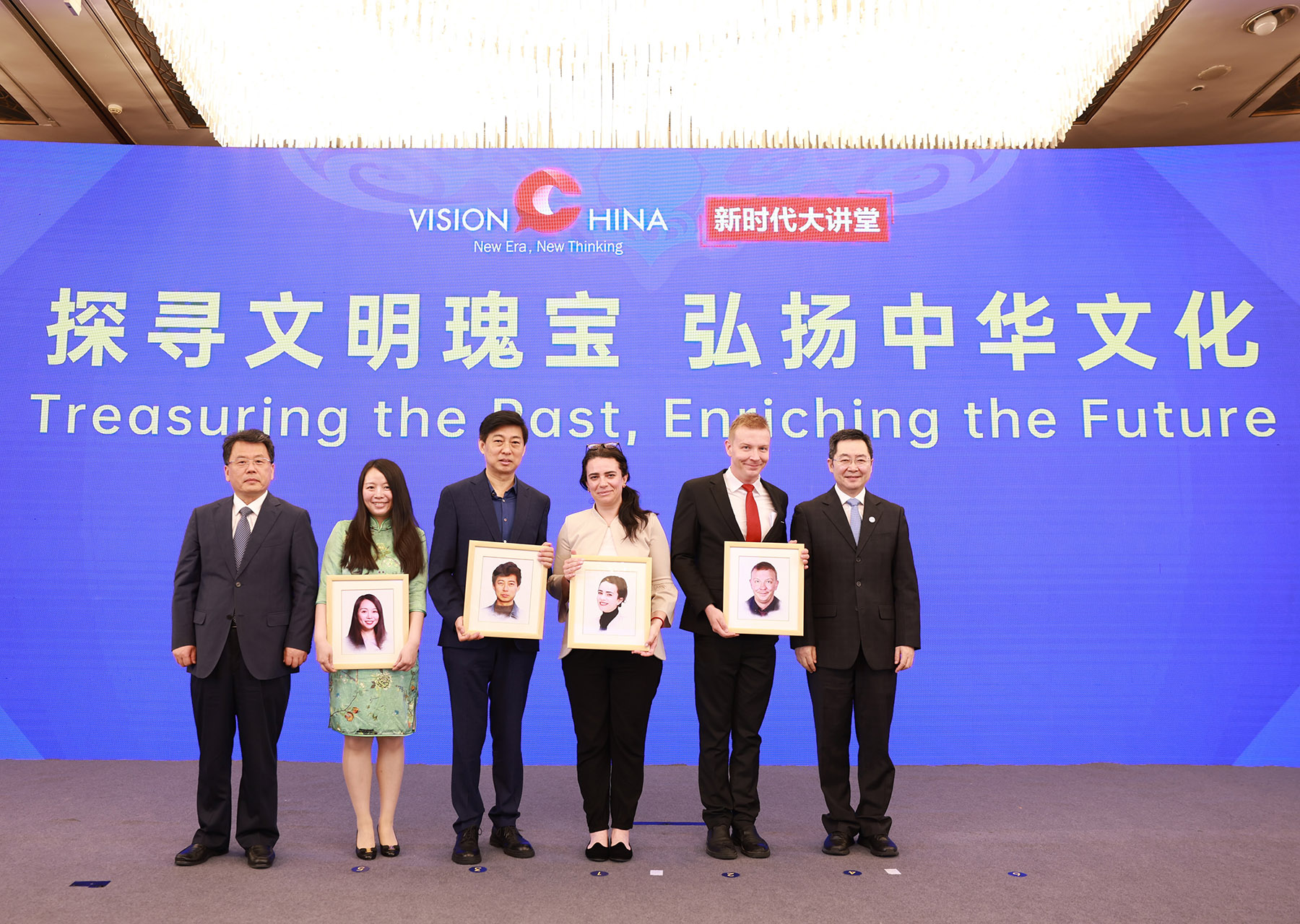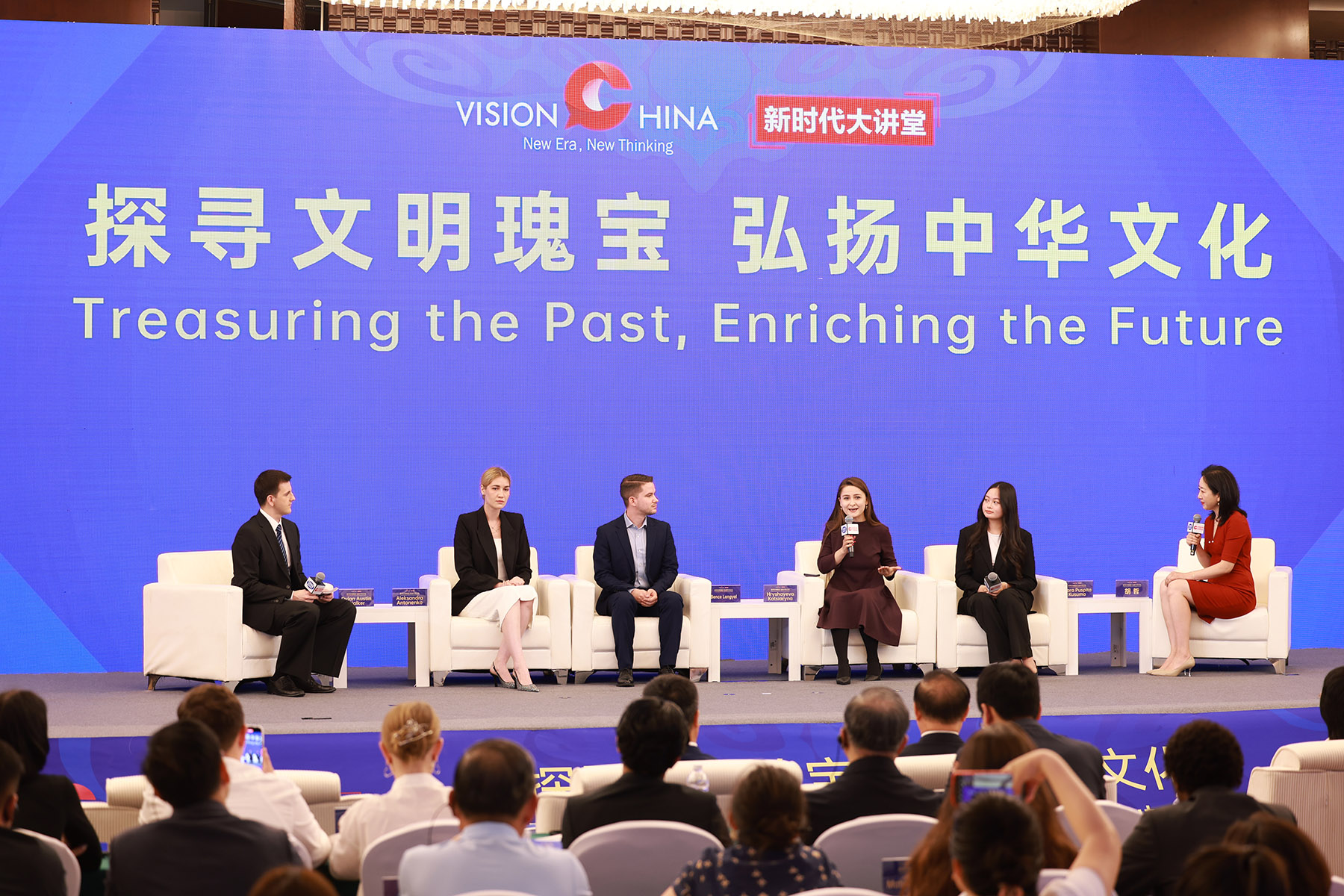
The youth dialogue segment of Vision China invited young representatives from various countries, who had just completed a two-day tour of historical attractions and scenic areas across Liaoning, to share their insights on exploring Chinese culture and protecting cultural heritage.
Reflecting on the tour, Aleksandra Antonenko, a Russian youth representative who holds a master's degree in Chinese politics from Shanghai Jiao Tong University, said that Liaoning made her feel at home.
"With its vast farmland and coastline, the food here is exceptionally fresh and delicious. I believe many tourists from Russia will love Liaoning," she said.
READ MORE: In evolving world, China must tell its stories well
The young woman began a social media channel with her boyfriend, a native of Shanghai, last year.
"Through the channel, we can tell China's stories, share our personal perspectives and create a more understandable image for our fellows from other countries," she said.
Similarly, Bence Lengyel, a postgraduate student from Renmin University of China, has traveled to more than 30 cities across China. Since 2022, he has been sharing his travel logs and photos in a monthly online column for The China Cultural Center in Budapest, Hungary.
"Throughout my stay in China, one of my main goals should be to represent this beautiful country to my people back home as much as possible," he said.
When asked about the most important factors in telling China's story, he said, "The most important thing is to stay trustworthy and be open, to communicate with people, especially those whose opinions differ from ours."

Throughout the two-day trip, Lengyel was impressed by the strong sense of pride the local people in Liaoning have for their cultural heritage and history.
"Our tour guide at the Wunyushan Mountain scenic area was a woman from the Manchu ethnic group. As we hiked, she not only talked about the history of the mountain but also shared her own life stories with us. I think it's very important for us to understand how important it is to protect our cultural heritage. It represents not just our country, but also who we really are," he said.
READ MORE: Liaoning's foundation provides springboard for prosperous future
He emphasized the need for international students in China to understand not only their own cultural heritage but also that of other countries. He believes that in the future, they might have the chance to positively influence the cultural heritage of others, fostering greater understanding and collaboration through partnerships.
Hryshayeva Katsiaryna, a Belorussian doctoral student from the School of Chinese Language and Literature at Beijing Foreign Studies University, agreed. "I think that cultural heritage serves as a link between the past, present and future and connects people to their roots," she said.
While discussing the impact of artificial intelligence and other advanced technologies on heritage protection, she expressed a positive viewpoint.
She said that the emergence of AI technologies has opened up new opportunities for cultural preservation. For example, VR can create exact replicas of cultural artifacts, which educators, the public, researchers and conservationists can use. AI algorithms can identify damage and plan for restoration. Additionally, AI can aid in protecting cultural heritage sites through environmental monitoring and data analytics, detecting potential risks like temperature and humidity changes.
"Of course, AI can have some disadvantages. But if we balance AI technologies with concerns, we can curate our heritage in a sustainable and inclusive way for future generations," she added.
Clara Puspita Kusuma, an Indonesian student at the University of International Business and Economics who has been living in Beijing for a year, said she learned more about the diversity of Chinese culture during her trip in Liaoning.
She believes such activities help boost cross-cultural understanding and exchange. "Through firsthand experience, mutual respect can be fostered. As a foreigner in China, I see myself as representing my country, Indonesia, and Southeast Asia. During my time here in Liaoning and my stay in China, I've met many people interested in my country. We share our cultures and have meaningful cultural experiences together," she said.


